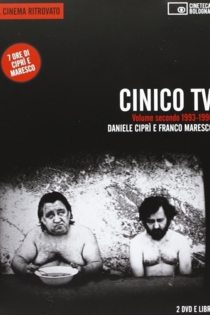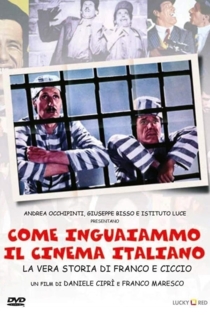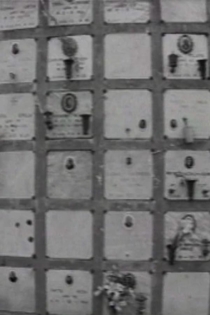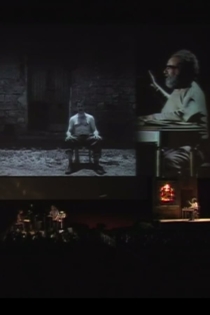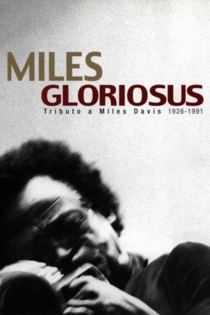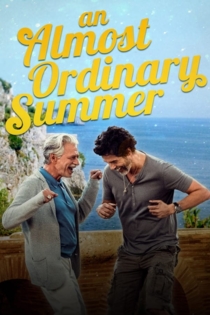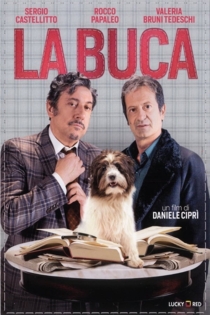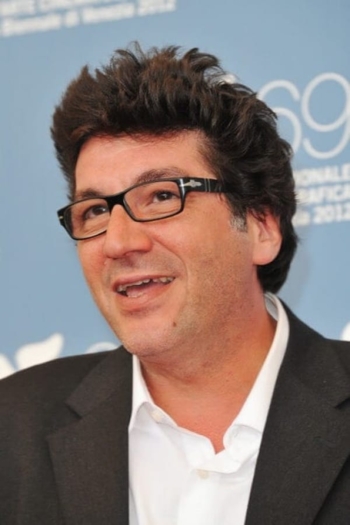
Daniele Ciprì
1962 (63 года)Enzo, domani a Palermo!
Franco Maresco, Daniele Ciprì
Enzo Castagna, Salvatore Cascio
Ciprì and Maresco's delicious documentary portrays Sicilian super-agent Enzo Castagna, a man with some 20,000 extras on his books, who has worked with the likes of Loren, Pasolini, Rosi, Coppola and Cimino (indeed, virtually anyone who's ever chosen to film in Palermo). It's typically weird, witty and wonderful, partly due to its subject, a self-styled 'little big man' who consents to be described as 'almighty' and 'the greatest contributor to Italian cinema in the last 35 years'. The local favourite has also done time for bribery, but refuses to comment on Cosa Nostra. The film is as astonishing as its subject. Shot in luscious b/w, it's driven forward by an offscreen interrogator who alternates between ludicrously hyperbolic flattery and forthright questions about corruption and crime. It also serves as a study of the way ethics get abandoned in the unending pursuit of fame, wealth and self-esteem.
Enzo, domani a Palermo!
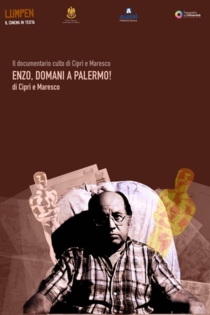
Arruso
Franco Maresco, Daniele Ciprì
In relation to some of Pasolini's visits to Palermo for this last film, in 2000 Ciprì and Maresco shot Arruso, which begins with a phrase by Pasolini ("I banished the word hope from my vocabulary") and consists of imaginary interviews with some local characters who are presumed to have had homosexual relationships with the director. The two record the testimonies, sometimes affectionate others less, of those who had the opportunity to meet him and know the trends on the occasion of that trip.
Arruso
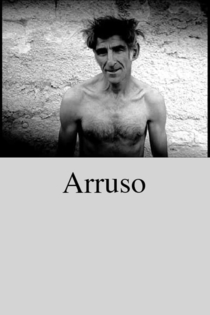
The Uncle from Brooklyn
Franco Maresco, Daniele Ciprì
Salvatore Gattuso, Pippo Agusta
The best italian film of the 90's, the most extreme and radical work since SALO', a ruthless representation, in a surreal-metaphorical key, of a civilization condemned to worshipping its own blindness. The two sicilian directors use a language free from compromise and from the traditional storyline rules: the movie is photographed in a sharp and very contrasting black & white, with no beautiful pimp music, and lacks a logical story. There are no women (the ones we see are actually men), and the language is strict sicilian dialect. The directing style is characterized by long fixed shots on a post-atomic world, which is really present-day Palermo, inhabited by fat people in socks and underwear who burp and fart while roaming around smelly alleyways and waste dumps.
The Uncle from Brooklyn
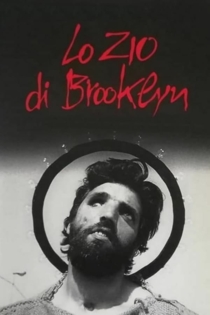
The Return of Cagliostro
Franco Maresco, Daniele Ciprì
Robert Englund, Luigi Maria Burruano
In the Sicily of the late 1940s, two brother sculptors, tired of selling madonnas to the local churches, finally realize their dream, and set up a Sicilian production company, thanks to the help of a local bishop. They start producing one box-office failure Z-movie after the other, all with terribly bad local non-pros as actors. Covered in debts, they finally have their great chance, when a local nobleman obsessed by magic decides to invest all his wealth in the making of a movie about Cagliostro, just one year after Orson Welles' Black Magic (1949). They hire a famous American actor (Robert Englund) and start shooting "The Return of Cagliostro".
The Return of Cagliostro
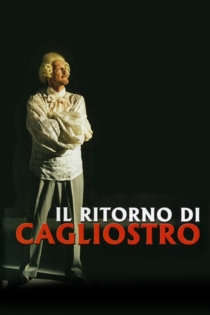
Totò che visse due volte
Franco Maresco, Daniele Ciprì
Salvatore Gattuso, Marcello Miranda
The film has three stories. First is about local village idiot Paletta, who can not afford the services of a whore and so steals a locket from a holy shrine belonging to local mafia don. Second shows the story of betrayal of Pitrinu (who's dead now) by his lover Fefe. Final episode is about lowlife Lazarus. He is killed by mob boss Toto, but raised from the dead by a local messiah, who is also known as Toto (and is played by same actor).
Toto Who Lived Twice
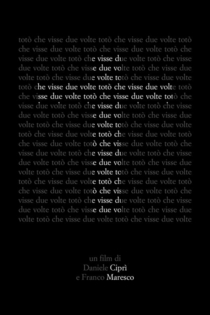
A memoria
Franco Maresco, Daniele Ciprì
The Italian duo Ciprì & Maresco, known to be cynical deconstructionists, weave a fascinating film around memories of a decadent Sicily. Ruins, memories of ruins - memories are ruins. This thoroughly surrealist piece unfolds like a dream, with no clear direction but the haunting feeling of familiarity and the ready acceptance of otherness as oneness.
A memoria
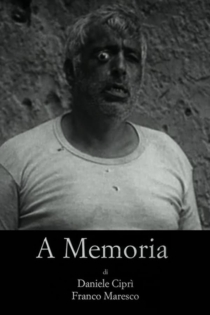
It Was the Son
Daniele Ciprì
Toni Servillo, Giselda Volodi
The Ciraulo family lives in the miserable district of Palermo called "Zen". When one of their children dies in a shootout between mafia gangsters they receive compensation and buy a luxury black Volvo. Things go wrong when Trancredi, another son, takes the car out and damages the car door.
It Was the Son
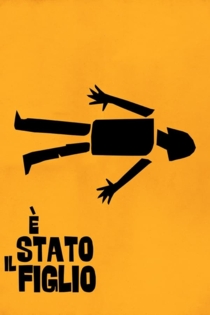
Vinicio Capossela: Il povero Cristo
Daniele Ciprì
Rossella Brescia, Enrique Irazoqui
Capossela denounces the impossibility for mankind to realize the Christian precept: "Love your neighbor as yourself". Thus Christ renounced his mission, made himself poor and ended up poor man. And now he is silent, while the man screams as loud as he can.
Vinicio Capossela: Il povero Cristo

